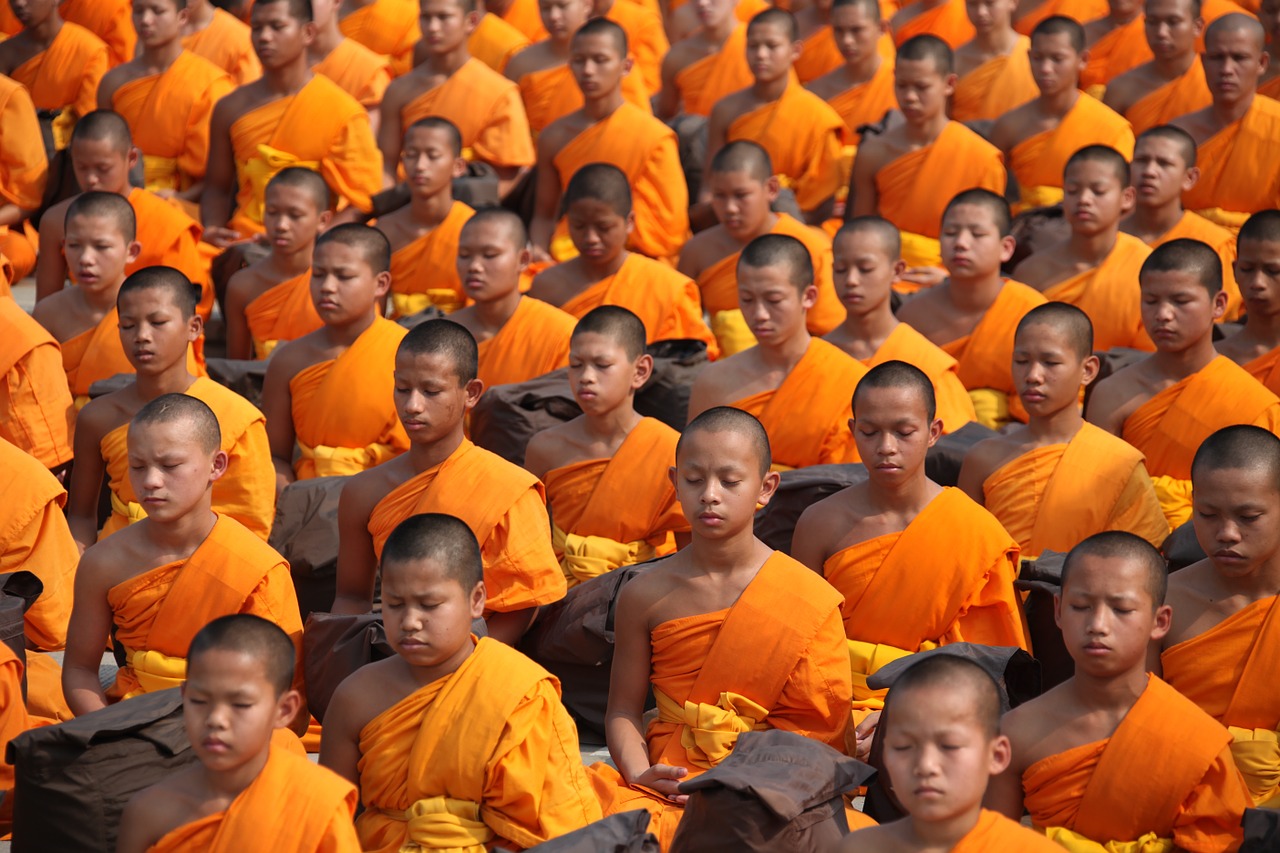
Health Charter for Buddhist Monks, established healthy monks, temples and happy communities in 10 years
Source: Matichon Online : https://www.matichon.co.th/news/778109
Photo Credit : https://pixabay.com/en/users/suc-379056/
Buddhist monks nationwide are ready to implement the 2017 Health Charter for Buddhist Monks for the good health of monks and communities nationwide. Its implementation is expected to make a difference in 10 years towards healthy monks, established temples and happy communities.
Phra Promwachirayan, member of Sangha Supreme Council of Thailand , introduced the 2017 Health Charter for Buddhist Monks during the opening of the 10th National Health Assembly at the IMPACT Forum in Nonthaburi province on December 20, 2017. Then executives of relevant organisations signed an MoU on implementation of the charter. They were Dr Poldej Pinprateep, secretary-general of the National Health Commission, Dr Jessada Chokdamrongsuk, permanent secretary for public health, Dr Supreda Adulyanon, CEO of the Thai Health Promotion Foundation, Dr Chuchai Sornchumni, deputy secretary-general of the National Health Security Office, and Mrs. Wachira Nuamcharoen, acting director-general of the National Office of Buddhism. The signing was witnessed by Deputy Prime Minister Chatchai Sarikulya who is also the chairman of the National Health Commission and Public Health Minister Clinical Professor Piyasakol Sakolsatayadorn.
On the occasion, Phra Phrom Wachirayan said the Health Charter for Buddhist Monks was formulated in relation to a resolution of the 5th National Health Assembly in 2012 on “Buddhist monks and well-being”. As monks are the spiritual leaders of people and society, their well-being is important. The Health Charter for Buddhist Monks is aimed at guiding health promotion for monks and communities in the country. The charter sets three goals: 1. monks’ ability to take care of their own health in compliance with Buddhist rules, 2. support from communities and society for monks in line with Buddhist rules, and 3. monks’ roles in advocating the well-being of communities and society.
“Buddhist monks have health problems due to offered foods, the lack of exercise and the environment in temples. All parties should join forces to support education that can lead to the physical, mental, intellectual and social well-being of monks and communities. Besides, temples, communities and relevant organizations should create the environment that promotes health. This is to have healthy monks, established temples and happy communities in 10 years.” In the afternoon about 50 monks from all over the country met to discuss the implementation phase of the Health Charter for Buddhist Monks. Participants shared useful opinions for the implementation calling for, for example, national mechanisms and local implementation through ecclesiastical chiefs.
PhraMaha Prayoon Chothivaro, student affairs director of Mahachulalongkornrajavidyalaya University, said that after the National Health Assembly’s consensus on “Buddhist monks and the development of well-being” proposed by concerned partners and people, all relevant parties agreed with the drafting of the Health Charter for Buddhist Monks. The draft received initial approval from the Sangha Supreme Council on March 20, 2017. Afterwards five public hearings were organised to gather opinions from Buddhist monks of Maha Nikaya and Thammayut orders and representatives from the Department of Health, the Ministry of Public Health (MoPH), the Thai Health Promotion Foundation (ThaiHealth), the National Health Security Office (NHSO), the National Health Commission Office (NHCO) and the National Office of Buddhism. About 300 monks attended the hearings. Their opinions were reported to the Sangha Supreme Council on November 30, 2017. The council acknowledged approval for the National Health Charter of 2017 and announced the implementation of the Health Charter for Buddhist Monks in the 10th National Health Assembly on December 20, 2017.
Phrakhru Piphitsutatorn (Boonchuay Doojai), deputy head of a working group formulating the Health Charter for Buddhist Monks, said many organisations were interested in promoting monks’ health. For example, NHSO plans to improve policies on the medical treatment of monks in 2019. It intends to allow ill monks to seek treatment at their nearest hospitals without any referral difficulties or limited treatment areas. This will help the monks who are in remote areas or make distant pilgrimages and are thus unable to return to the hospitals that were originally assigned to treat them. The new practice will start after the promulgation of the Health Charter for Buddhist Monks.
NHSO deputy secretary-general Dr Prachaksvich Lebnak said that in the past 15 years health security systems had been planned without a special attention to monks. The 2017 Health Charter for Buddhist Monks will lead to learning and developments. NHSO will invite monks to take part in designing health service systems.
Asst Prof Dr Weerasak Putthasri, deputy secretary-general of the National Health Commission, said that the National Health Commission Office together with partners including ThaiHealth, NHSO, the National Office of Buddhism and the Ministry of Public Health would push for well-being in accordance with the new charter.
“As there is the national Health Charter for Buddhist Monks, it must be implemented nationwide. There can be health charters for communities so that the implementation will completely suit local lifestyles and contexts.”
